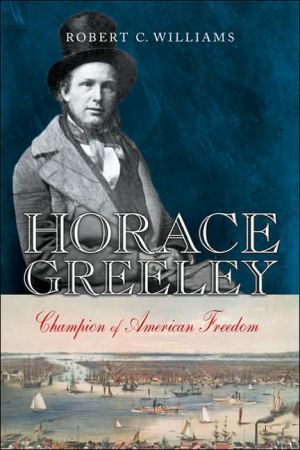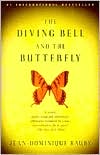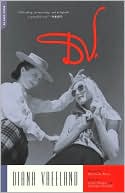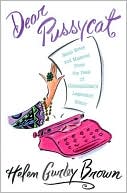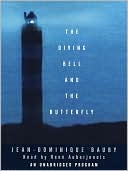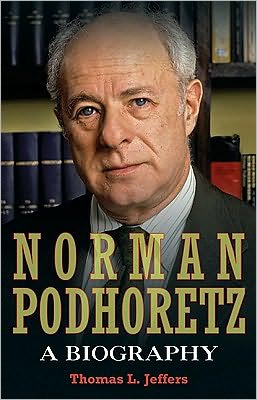Horace Greeley: Champion of American Freedom
From his arrival in New York City in 1831 as a young printer from New Hampshire to his death in 1872 after losing the presidential election to General Ulysses S. Grant, Horace Greeley (b. 1811) was a quintessential New Yorker. He thrived on the city's ceaseless energy, with his New York Tribune at the forefront of a national revolution in reporting and transmitting news. Greeley devoured ideas, books, fads, and current events as quickly as he developed his own interests and causes, all of...
Search in google:
From his arrival in New York City in 1831 as a young journalist from New Hampshire to his death in 1872 after losing the presidential election to General Ulysses S. Grant, Horace Greeley (b. 1811) was a quintessential New Yorker. The New Yorker Horace Greeley was America’s most famous editor and, with his Tribune, a defining voice in mid-nineteenth-century politics. He was an early promoter of Thoreau, lent money to Poe, and employed as foreign correspondents both Mark Twain and Karl Marx (who described Greeley to Engels as a “jackass with the face of an angel”). Williams gives a straightforward account of Greeley’s personal life, which included an unhappy marriage made bleaker by the couple’s fascination with utopian communities and dietary fads. To contemporaries, Greeley was a portrait in contradictions: he helped found the Republican Party, then ran for President as a Democrat; was late in becoming an “anti-slavery man,” then excoriated Lincoln for moving slowly on emancipation; urged headlong assaults on the Confederacy, then bailed Jefferson Davis out of jail. Williams, however, argues that Greeley unswervingly devoted himself to a single ideal—American freedom—and was, in turn, crucial to its development.
\ From the Publisher“From James Patron’s 1855 Life of Horace Greeley through Greeley's 1868 autobiography Recollections of a Busy Life, and down to the present, dozens of voices have told the story and legend of Horace Greeley. Williams’s rich and well-presented account of his ideological and political legacy is a welcome addition to that chorus. It is certainly worth hearing.”\ -The Journal of American History\ ,\ “Williams’s work is an essential one for those wanting to understand the social and political climate in the United States during the time between some have called the two American revolutions- ones that was fought for liberty and one that was pursued for freedom.”\ -Civil War Book Review\ ,\ “A splendid telling of a story that couldn't be more timely now that we are in another difficult and controversial war.”\ -The Wall Street Journal\ ,\ “Williams gives a straightforward account . . . [and] argues that Greeley unswervingly devoted himself to a single ideal—American freedom—and was, in turn, crucial to its development.”\ -The New Yorker\ ,\ “In Mr. Williams’ hands, Greeley comes through as a warm-hearted eccentric whose influence was greater than that of any editor today.”\ -Washington Times\ ,\ \ \ \ \ \ The Wall Street Journal"A splendid telling of a story that couldn’t be more timely now that we are in another difficult and controversial war."\ \ \ The New YorkerHorace Greeley was America’s most famous editor and, with his Tribune, a defining voice in mid-nineteenth-century politics. He was an early promoter of Thoreau, lent money to Poe, and employed as foreign correspondents both Mark Twain and Karl Marx (who described Greeley to Engels as a “jackass with the face of an angel”). Williams gives a straightforward account of Greeley’s personal life, which included an unhappy marriage made bleaker by the couple’s fascination with utopian communities and dietary fads. To contemporaries, Greeley was a portrait in contradictions: he helped found the Republican Party, then ran for President as a Democrat; was late in becoming an “anti-slavery man,” then excoriated Lincoln for moving slowly on emancipation; urged headlong assaults on the Confederacy, then bailed Jefferson Davis out of jail. Williams, however, argues that Greeley unswervingly devoted himself to a single ideal—American freedom—and was, in turn, crucial to its development.\ \ \ \ \ Library JournalHorace Greeley, founding editor of the New York Tribune, proclaimed a gospel of freedom to the public on both sides of the Atlantic during the most tumultuous years of the 19th century. A journalist, political pundit, and presidential candidate, he shaped as well as reflected the history of the period. This study by Williams (history, emeritus, Davidson Coll.; Klaus Fuchs: Atom Spy) examines the life of this eccentric but persuasive personality from the early 1830s, when he arrived in New York from New England, through his death in 1872 shortly following a bitter and unsuccessful run for the presidency. Stressing Greeley's dedication to a wide variety of reform movements that promoted basic freedoms and his interactions with intellectuals across the nation and across the sea, this accessible study by a seasoned historian is based on an impressive collection of primary resources. A useful update to older comprehensive studies such as Glyndon G. Van Deusen's Horace Greeley: Nineteenth-Century Crusader, it is recommended for larger libraries that wish to build comprehensive collections on the political and intellectual history of the Civil War era.-Theresa McDevitt, Indiana Univ. of Pennsylvania Lib. Copyright 2006 Reed Business Information.\ \ \ \ \ Kirkus ReviewsA comprehensive biography of Greeley (1811-72), deftly analyzing the price he paid to brook no intrusion, partisan or otherwise, on his principles. Fresh from apprenticing as a typesetter in small printing shops in New England and upstate New York, the 23-year-old Greeley arrived in New York City to found the weekly opinion journal, the New Yorker, in 1834. Seven years later, he started a newspaper, the Herald Tribune. By hiring savvy reporters and columnists like Samuel Clemens (even Karl Marx was a foreign contributor) Greeley built the Trib into perhaps the world's most widely read daily, and the most trusted in America at the time of the Civil War. He beat the drum for an expansionist-"go West"-America based on freedom and equal opportunity for all; free, that is, from the institution of slavery Greeley had come to abhor. To maintain integrity by his own standard, Williams stresses, Greeley not only had to turn against the Republican Party he helped found, but also to criticize the president he had anointed. (Lincoln himself, however, never wavered in his regard for Greeley, once a fellow Congressman who, when appointed to fill an open seat, dared call Honest Abe to account for padding his travel expenses.) Even after he had "committed political suicide," Williams notes, by funding a bail bond for former Confederate president Jefferson Davis, Greeley entered the 1872 campaign opposing U.S. Grant as the presidential candidate of the reformist Liberal Republican party and, without seeking it, also won the Democrats' nomination. His former Republican cohorts promptly moved to discredit him with vicious attacks tying him to everything from the Ku Klux Klan to New York's ultra-corrupt BossTweed administration. The experience, the author reckons, likely hastened his death. Powerful portrait of a publisher who became the voice of Middle America during the nation's deepest crisis.\ \
